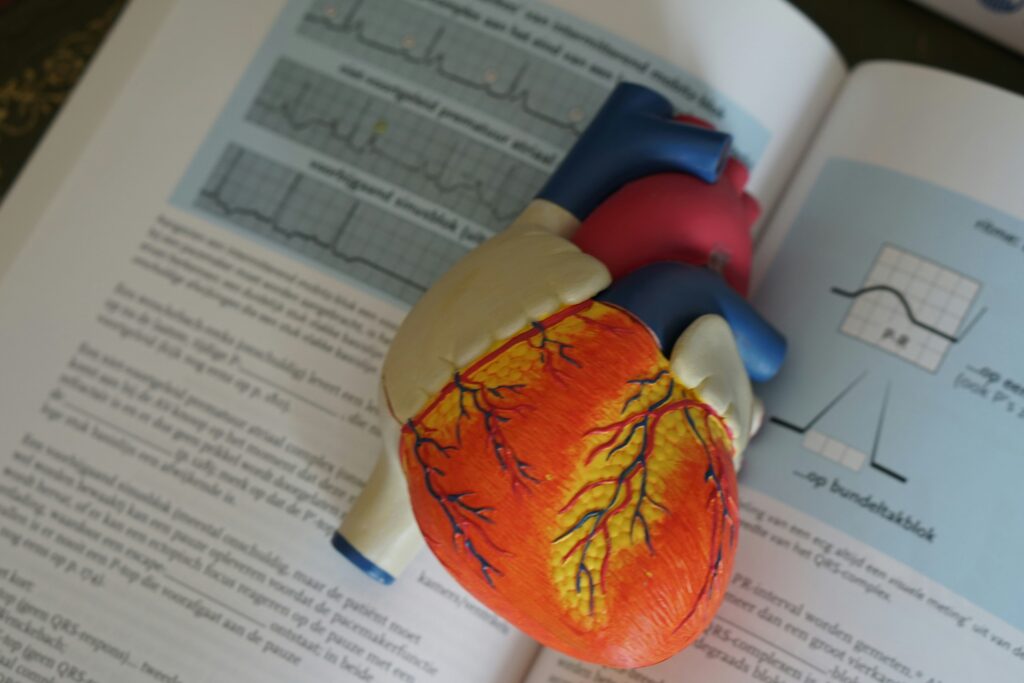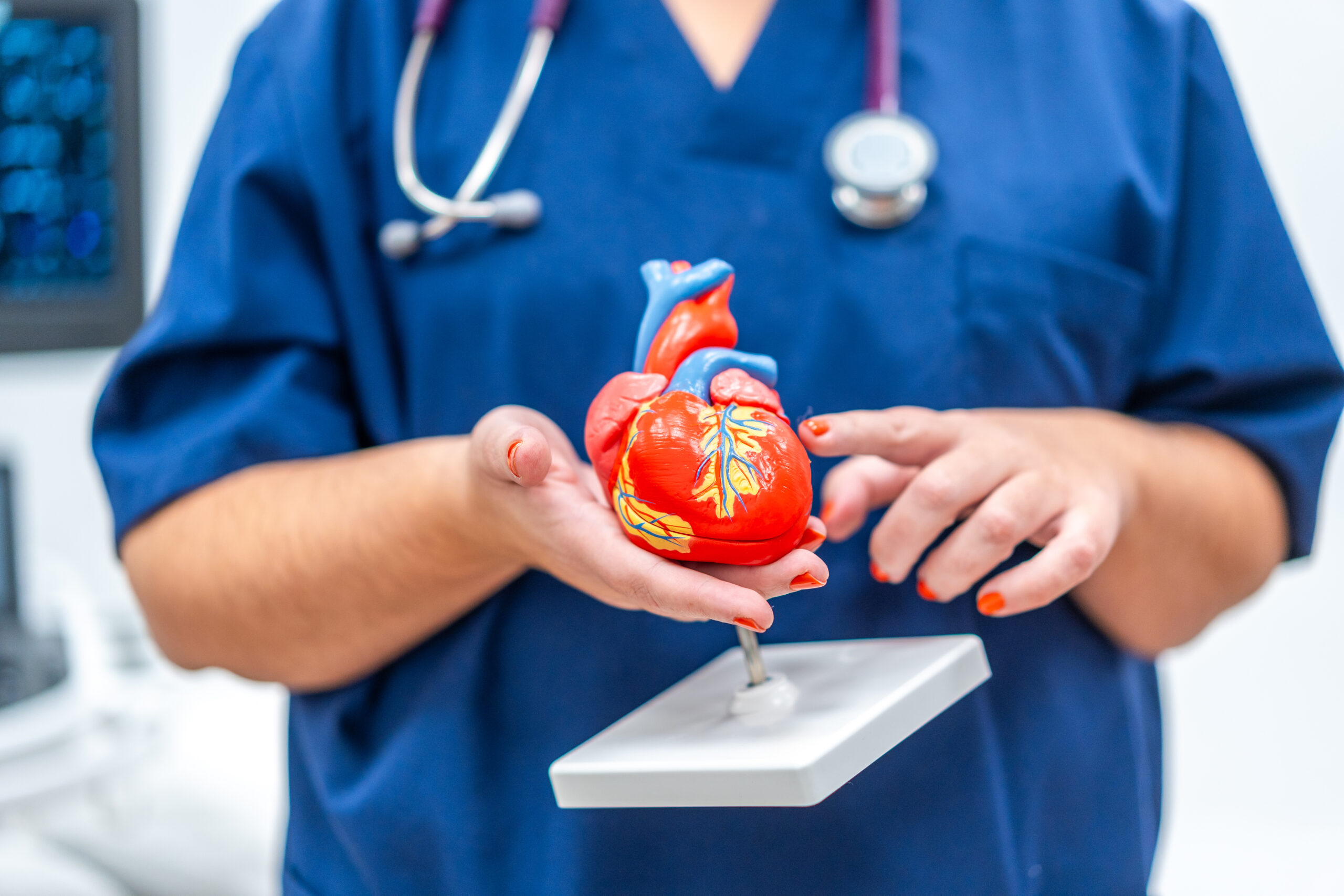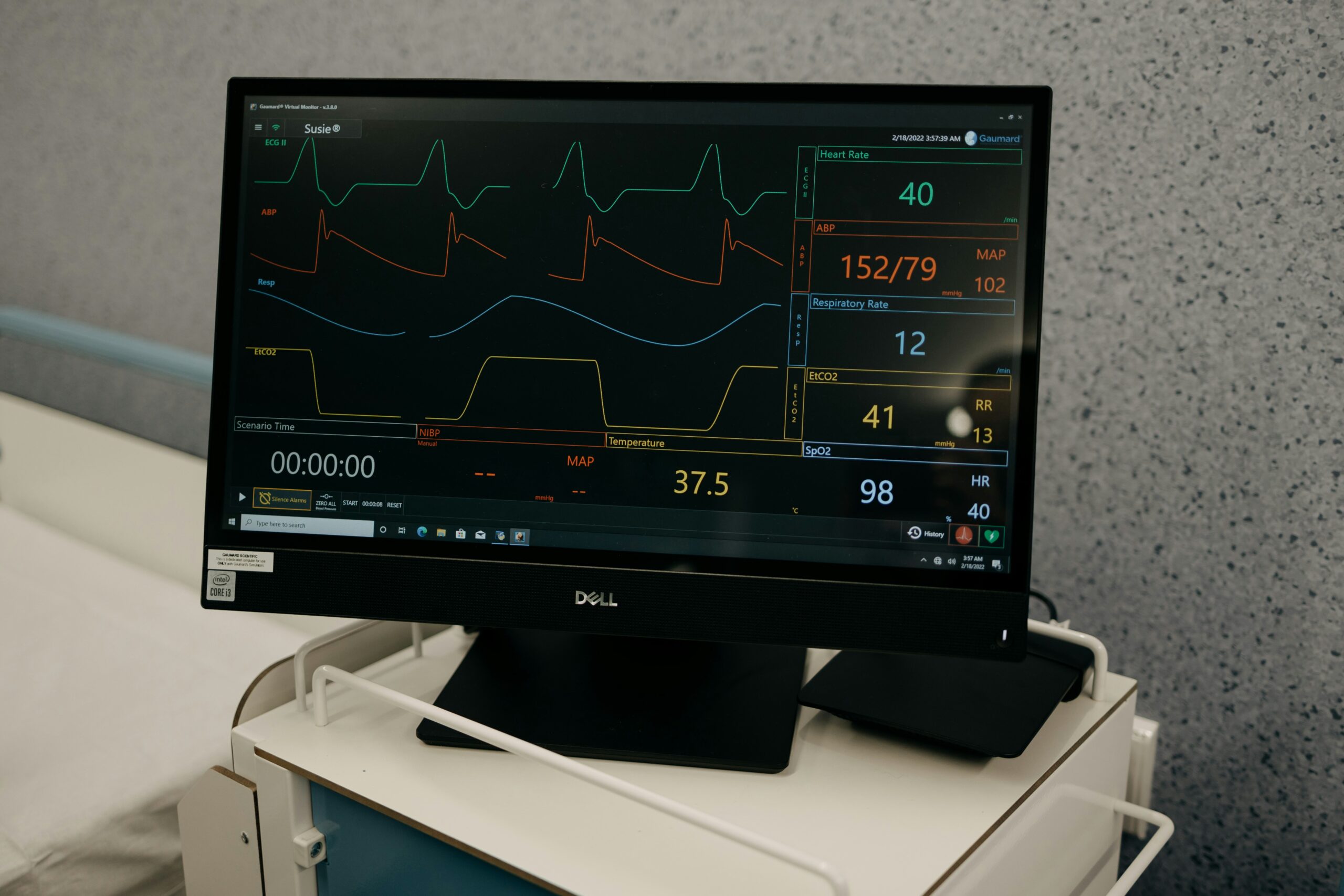
Unraveling the Link Between Stress and Atrial Fibrillation
Exploring the Biological Mechanisms: How Stress Triggers Atrial Fibrillation
Imagine this: you’re stuck in traffic, late for an important meeting, and your heart starts to race. For most of us, this is a temporary tension that fades away. But for individuals with atrial fibrillation (AFib), stress can be a more insidious trigger, sparking episodes that are both distressing and disruptive. So, how does stress flip the switch on AFib?
At its core, atrial fibrillation is a condition where the heart’s electrical system goes awry, causing an irregular and often rapid heartbeat. When we’re stressed, our bodies release stress hormones like adrenaline and cortisol, which prepare us for “fight or flight.” These hormones can increase heart rate and blood pressure, setting the stage for electrical misfires in the heart. Essentially, the heart starts to dance to its own erratic beat, leading to an AFib episode.
But the story doesn’t end with hormones. Stress also affects the autonomic nervous system, which controls involuntary bodily functions like heart rate. Chronic stress can lead to an imbalance in this system, tipping it towards sympathetic dominance—think of it as having a heavy foot on the gas pedal of your heart. This sympathetic overdrive is a prime setting for AFib triggers, turning stress from a psychological state into a biological mechanism that impacts the heart.
You might wonder, “Are we all equally vulnerable to stress-induced AFib?” Interestingly, the answer is no. Factors like genetics, existing heart conditions, and even lifestyle choices play a significant role in determining how stress impacts an individual. For some, a minor stressor could be enough to trigger an episode, while others might only experience AFib under extreme stress.
So, what can we do about it? Understanding the triggers of AFib, particularly stress, is the first step in managing the condition. By identifying stress as a trigger, individuals can work on stress-reduction techniques such as mindfulness, meditation, or yoga. These practices not only lower stress levels but also help maintain the balance of the autonomic nervous system, reducing the likelihood of AFib episodes.
Incorporating stress management into daily life isn’t just a strategy—it’s a proactive step towards better heart health. By acknowledging the link between stress and AFib, we can take control of what seems uncontrollable, transforming stress from a foe into a manageable aspect of living with atrial fibrillation. And remember, understanding our triggers is half the battle won.
Delving into the Effects of Alcohol on Atrial Fibrillation
The Relationship Between Alcohol Consumption and Atrial Fibrillation: What You Need to Know
Picture this: it’s a festive gathering, and you’re enjoying a glass of wine. For many, it’s a moment of relaxation and joy. However, for those with atrial fibrillation (AFib), alcohol can be a slippery slope. It’s not just about overindulgence; even moderate drinking can be a trigger for AFib. But why does alcohol have such a significant impact on this condition?
Firstly, let’s consider what happens when we consume alcohol. Alcohol affects the heart in various ways—it can increase heart rate, alter electrolyte levels, and even change the way our heart’s electrical system functions. For individuals with AFib, these changes can pave the way for an erratic heartbeat. Essentially, alcohol acts like a mischievous conductor, causing the heart’s rhythm to fall out of sync.
But there’s more to the story. Alcohol is also a diuretic, meaning it increases urine production and can lead to dehydration. Dehydration, in turn, affects electrolyte balance, particularly the levels of potassium and magnesium—minerals crucial for maintaining a steady heartbeat. When these levels are off-kilter, the risk of AFib episodes rises.
Interestingly, there’s a well-documented phenomenon known as “holiday heart syndrome,” where binge drinking during festivities leads to AFib episodes in otherwise healthy people. This clearly illustrates alcohol’s potential as a trigger for AFib, even in those without a history of the condition.
You might be thinking, “Does this mean I need to give up alcohol entirely?” The answer is nuanced. While some individuals with AFib may find that abstaining from alcohol significantly reduces episodes, others might tolerate small amounts without issue. The key lies in understanding personal triggers of AFib and monitoring how alcohol affects one’s heart rhythm.
For those with AFib, it’s wise to approach alcohol consumption with caution. Limiting intake, staying hydrated, and observing how the body responds can be valuable strategies in managing this trigger. It’s also worth discussing with a healthcare provider, who can offer personalized advice based on individual circumstances and medical history.
In essence, while alcohol might be a pleasurable part of social life, it’s essential to be mindful of its potential as an AFib trigger. By understanding this relationship, individuals can make informed choices—enjoying life’s moments without compromising heart health. Remember, knowledge about what triggers AFib is a powerful tool in navigating the complexities of living with this condition.
The Influence of Caffeine on Afib Triggers
Debunking Myths: How Caffeine Consumption Impacts Afib Triggers
Ah, caffeine—the beloved pick-me-up that powers our mornings and fuels our afternoons. It’s the world’s most popular stimulant, yet when it comes to atrial fibrillation (AFib), its reputation is a bit shaky. Is caffeine truly among the triggers of AFib, or is it more myth than reality?
Let’s start with the basics. Caffeine, found in coffee, tea, chocolate, and many soft drinks, is known to increase heart rate and blood pressure temporarily. Given these effects, it’s understandable why many people with AFib might suspect caffeine as a potential trigger. However, the relationship between caffeine and AFib is not as straightforward as one might think.
Several studies have explored this connection, and interestingly, the results have been mixed. Some research suggests that moderate caffeine intake doesn’t significantly increase the risk of AFib. In fact, a study published in the Journal of the American College of Cardiology found that habitual coffee consumption was not associated with an increased risk of AFib in most people. This suggests that for many, moderate coffee drinking might be safe.
So, why the confusion? It turns out that individual responses to caffeine can vary greatly. While some people with AFib might handle a morning cup of joe without any issues, others could experience palpitations or even an AFib episode. This suggests that caffeine’s role as a trigger is highly individualistic, depending on one’s unique physiology and sensitivity.
For those with AFib, it’s crucial to tune into how their body responds to caffeine. Keeping a journal to track intake and any related symptoms can be a helpful way to identify personal thresholds. Some might find that limiting caffeine or opting for decaffeinated versions reduces the frequency of AFib episodes, while others may discover that moderate consumption poses no problem.
Ultimately, understanding caffeine’s impact on AFib is about personalization. It’s not about eliminating caffeine entirely unless it’s a clear trigger. Instead, it’s about balancing enjoyment with awareness. By debunking myths and focusing on personal experience, individuals can make informed decisions that support both their lifestyle and heart health.
In conclusion, while caffeine often finds itself under scrutiny as a potential AFib trigger, the evidence suggests a more nuanced picture. By paying attention to individual responses, those with AFib can enjoy their caffeine fix sensibly, without unnecessary fear. After all, understanding what triggers AFib is as much about scientific knowledge as it is about personal awareness.
Lifestyle Changes for Living with Atrial Fibrillation
Diet Modifications for Atrial Fibrillation: Foods to Enjoy and Avoid
When it comes to managing atrial fibrillation (AFib), the food on our plates can play a powerful role. Our daily dietary choices can either help stabilize heart rhythm or inadvertently act as triggers of AFib. But how do we navigate these choices for a heart-healthy lifestyle?
Imagine your body as a finely tuned orchestra, where diet acts as the conductor ensuring all parts play in harmony. Certain foods can help keep your heart’s rhythm in check, while others might set it off-beat. For those with AFib, embracing a heart-friendly diet can mitigate the risk of episodes and improve overall well-being.
First, let’s talk about foods to embrace. A Mediterranean-style diet, rich in fruits, vegetables, whole grains, and lean proteins like fish, is often recommended. These foods are packed with heart-protective nutrients and antioxidants that support cardiovascular health. Omega-3 fatty acids, found abundantly in fatty fish like salmon, have been shown to reduce inflammation and improve heart rhythm stability, making them a smart choice for those managing AFib. See more.
Conversely, there are foods and substances to approach with caution. High-sodium foods can increase blood pressure, exacerbating AFib symptoms. Processed and fast foods, which often contain hidden salts and unhealthy fats, should be limited. Additionally, refined sugars and excessive carbohydrates can lead to weight gain and insulin spikes, both of which can be triggers of AFib. Learn more about nutrition for cardiovascular health
But it’s not just about what you eat—hydration is equally crucial. Dehydration can lead to electrolyte imbalances, which might provoke AFib episodes. Ensuring adequate fluid intake, especially water, is important for maintaining the balance of electrolytes like potassium and magnesium that are vital for heart function.
Stress Management Techniques: Coping Strategies for Living Well with Afib
Stress, a known trigger of AFib, can be likened to an uninvited guest that disrupts the peace. Managing stress is not just about avoiding episodes; it’s about enhancing quality of life with AFib. How can we effectively manage stress to keep our hearts calm?
Mindfulness practices, such as meditation and yoga, have shown promise in reducing stress levels and improving autonomic balance—key for those with AFib. These practices help cultivate a sense of calm and control, counteracting the “fight or flight” response that stress can induce. Even a few minutes of deep breathing daily can lower stress hormones and promote a steady heart rhythm.
Engaging in regular physical activity is another effective strategy. Exercise releases endorphins, the body’s natural mood elevators, and can help alleviate stress. However, it’s important to find the right balance, as excessive exercise might also act as a trigger for some individuals with AFib.
Lastly, fostering strong social connections and support networks can provide emotional resilience. Sharing experiences with others who understand can be profoundly comforting and help mitigate the stress often associated with managing a chronic condition like AFib.
By incorporating these dietary and stress management strategies, individuals with AFib can take proactive steps towards reducing triggers and living a healthier, more balanced life. After all, understanding what triggers AFib is the foundation for making informed lifestyle choices that promote long-term heart health.
Lifestyle Choices That Can Help Reduce Afib Triggers
The Impact of Regular Exercise on Atrial Fibrillation Triggers: Finding the Right Balance
Imagine your heart as a finely engineered machine, humming along as you navigate your day. For individuals with atrial fibrillation (AFib), keeping this machine well-tuned is essential to avoid disruptions in its rhythm. One of the most effective tools at our disposal is regular exercise, but how does it influence the triggers of AFib?
Exercise, when done correctly, is a heart’s best ally. It strengthens the cardiovascular system, improves circulation, and helps maintain a healthy weight—all factors that contribute to reducing the incidence of AFib episodes. However, the key lies in finding the right balance, as both inactivity and excessive exercise can be potential triggers of AFib.
Moderate, consistent exercise is generally recommended for those with AFib. Activities like walking, cycling, swimming, or even tai chi can enhance heart health without overloading the system. These exercises help maintain flexibility and fitness while keeping stress levels in check, providing a dual benefit for individuals managing AFib.
However, it’s important to be mindful of your limits. Intense physical activity or long-duration endurance exercise might lead to dehydration and electrolyte imbalances, which can act as triggers for AFib. Listening to your body and adjusting your exercise routine as needed is crucial.
Before starting any new exercise regimen, consulting with a healthcare provider is advisable. They can offer guidance tailored to your specific health profile, ensuring that your exercise plan supports rather than hinders your heart health.
Moreover, integrating physical activity into daily life doesn’t mean hitting the gym every day. Simple changes, like taking stairs instead of the elevator, parking further from your destination, or engaging in home-based workouts, can make a significant difference. The goal is to make movement a natural and enjoyable part of your routine.
In summary, while exercise is undeniably beneficial, understanding its role in the context of AFib is essential. By finding the right balance and making informed choices, you can harness exercise as a tool to minimize triggers and enhance your overall well-being. Remember, it’s not just about avoiding AFib episodes; it’s about building a lifestyle that supports your heart health and enriches your life.
Incorporating these lifestyle choices into your daily routine can help manage the triggers of AFib, ultimately leading to a more stable and fulfilling life. As we continue to learn more about AFib and its management, staying informed and proactive remains our best strategy for heart health.


